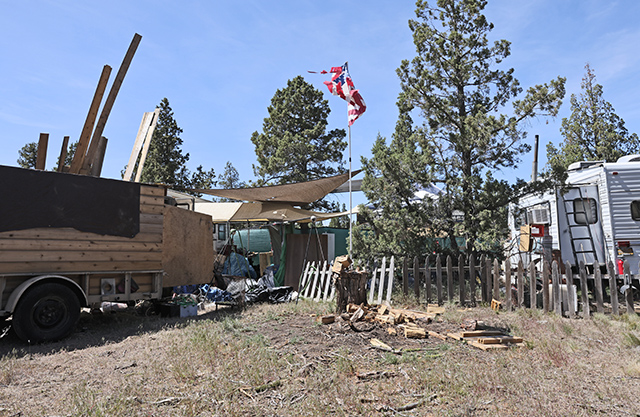Sell or rent? Many opt to become landlords
Published 12:00 am Sunday, April 13, 2014
The real estate market has long worked on a simple system: If you want to buy a new house, sell the old one and use the equity for a down payment.
But the past few years of low ownership costs and rising rents have some move-up buyers trying a new approach: Buy the new house. Keep the old one. And rent it out.
Real estate firm Redfin recently asked 1,900 prospective home buyers nationwide what they planned to do with their old house when they bought a new one. As you’d expect, the majority said they would sell. But 39 percent said they’d rent it out. In Western markets that have seen big price growth lately, like Los Angeles, the percentage was even higher.
“We certainly didn’t expect that,” said Ellen Haberle, Redfin’s real estate economist and the survey’s author.
It’s the first time that Redfin has conducted this kind of study. But real estate agents and property managers say they’re seeing the same thing: a noticeable uptick in the number of home buyers who want to rent out their old place.
“We’ve had more calls in the last two months with situations like this than we’ve had in two years,” said Trevor Henson, managing partner at First Light Property Management in Manhattan Beach, Calif. “It is definitely on the upswing.”
If this trend holds, it could mean even fewer homes for sale in an already tight market. But for a certain type of homeowner, becoming a landlord could make a lot of sense.
Rents are up in parts of the country. Buyers who bought at the bottom of the market in 2009 got a bargain. Then came years of opportunity to refinance into record-low interest rates. That means many owners can rent out their home for more than it costs them each month, even with taxes and other ownership costs figured in.
With the tenant covering the note, they can build equity — especially if home prices continue to rise.
“It’s a market-based decision,” Henson said. “They know they can get really high rents right now. If I’m locked in on a 30-year fixed (mortgage) at 4 percent, and if home values are going up, it can make a lot of sense.”
Timing it right
It did for Brian Darcy. The 36-year-old and his wife recently moved to North Carolina to be closer to her family. Instead of listing their three-bedroom in Manhattan Beach for sale, they signed with First Light and put it up for rent. Within a week they had a tenant and a lease that paid more than enough to cover the mortgage, Darcy said.
“The confluence of events kind of blew my mind,” he said.
Darcy and his wife bought the house in 2010 and always planned to move to something bigger. With two growing children and regular visits from relatives, it was getting to be that time. But the houses they were eyeing in Manhattan Beach were going up in price just as fast as theirs was.
They had enough savings for a down payment in North Carolina, and he could work from there as easily as in California. So off they went. They’re looking for houses now and finding that their money will go a lot farther in their new home.
The timing, Darcy said, couldn’t have been better. He estimates that his house in Manhattan Beach is worth one-third more than he paid for it four years ago, and he refinanced into lower interest rates. Now rents are rising.
“We bought at a good time,” Darcy said. “That’s what makes the mechanics work.”
Many of the new landlords are affluent and financially savvy, Haberle said. They’re not necessarily in it for the long haul, but they see a chance to profit right now.
“These amateur landlords aren’t people who are doing this for a living,” she said. “They just kind of happened into this opportunity.”
Vanessa Ginn, president of Platinum Property Management Group in Los Angeles, said she’s seeing a lot more people considering the idea and looking for help. But being a landlord has its challenges, including fair housing laws, tenant screening and the potential for costly repairs. It can be particularly difficult for first-timers or homeowners who move out of town.
“You don’t always know what’s going on with the property,” Ginn said. “Your tenant can tell you something that’s going on that you can’t see.”






